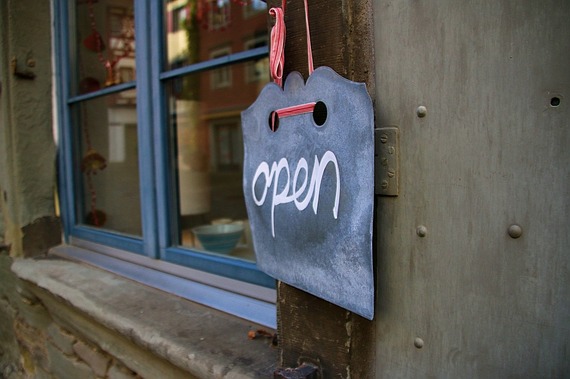Choosing a location for a business office, warehouse, or retail space is one of the most critical decisions an entrepreneur will face early in a company's life cycle. That's because signing a lease or purchasing a building surrenders your company's fate to that specific location--and if it's not appealing to prospective customers or employees, then you've got a very big problem.
Luckily, thanks to internet research and demographic data, today's business owners have access to more tools than ever before to assist in making this decision. Here's how to approach choosing the best location for your business.
Outline the business' needs
The best space and location for a company vary dramatically depending on the type of business it is. For example, an accounting firm will require office space in a commercial building, while a manufacturing firm may need a large warehouse in an area that's zoned appropriately. Start the location search by thoroughly assessing the business' needs, including zoning requirements and whether you anticipate needing deliveries, making shipments, or attracting walk-in customers. These factors will play a huge role in determining the right location.
Know your customers
Before renting or purchasing a space, it's critical to have an understanding of your ideal customer avatar (or the specific demographic the business is attempting to target) and how you're trying to sell to them. If it's important that the business be in proximity to potential customers, then evaluate prospective locations based on demographic data that provides insight into the age, education levels, economic base, and other characteristics of the people living nearby. Seek out areas where this data most closely resembles the list of traits possessed by your ideal client.
Consider accessibility and safety
This is important not just for customers, but for employees as well. Will it be easy for people to find parking, to walk to the establishment, to access other stores nearby? Will delivery trucks fit into the parking lot? Will employees feel safe arriving early or working late? Will it be necessary (and possible) to invest in a security system? If the business isn't meant to attract customers, is it convenient for potential investors or strategic partners? These are some of the most important questions to ask, because an area that's hard to get to or seems unsafe is all but guaranteed to be bad for business.
Know the costs
When calculating a budget, it's critical to take into account the full range of costs involved in running a business, from utilities to insurance, renovations, IT system upgrades, taxes, and so on. Budgeting beyond the rent or mortgage payment will help ensure you don't break the bank. Also research whether the local government offers any economic incentives for opening a business in a certain location. Even as you prioritize keeping costs down, remember that it's critical to invest in a location that's going to improve the chances of the business' success long-term.
Cultivate a brand
A company's physical location serves as the first impression it will make on potential customers or investors. People's impressions of the building and its surroundings will influence their perception of your brand, so think carefully about what potential locations might say about your business.
Scope out the competition
Depending on your industry and business goals, competition can be either a beneficial or a negative factor in growing the company. Explore the area to get a sense of nearby businesses, including their customer demographics, accessibility, and whether or not they might provide auxiliary services to clients or employees. Then decide whether their presence might hurt or facilitate the company's prospects.
Anticipate growth
If you hope to expand retail space or hire more employees down the road, then seek out a building of an appropriate size. At the same time, keep in mind that there's no sense in taking on more space than the business can reasonably fill in the foreseeable future, particularly since more space typically comes with a larger cost. Weigh future goals with present realities when making any decisions on size.
Yes, it's a lot to consider. But it's worth putting in the time now instead of realizing two months into a five-year lease that you've made a terrible mistake. Take the time to find the right location for your business, and you'll reap rewards for years to come.



